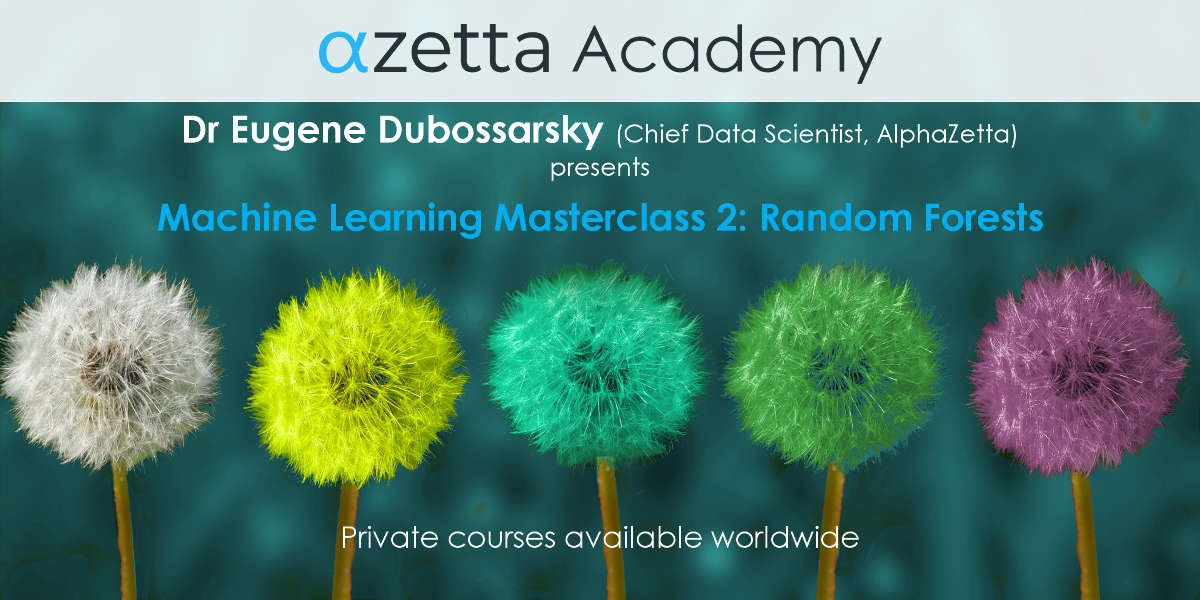Advanced Machine Learning Masterclass II: Random Forest
This advanced machine learning masterclass will explore the many unique applications and extensions of the randomForest package, many of which are implemented in R. Access to the methods in random forest allows the user [...]



